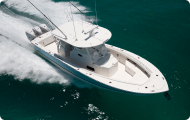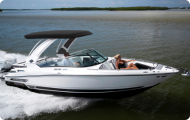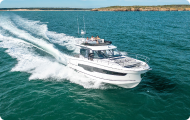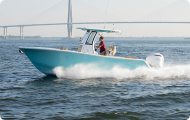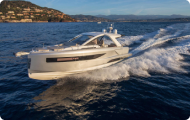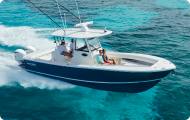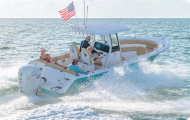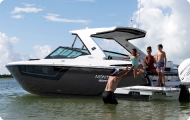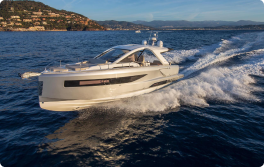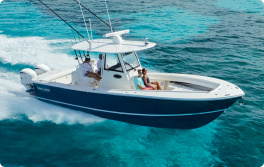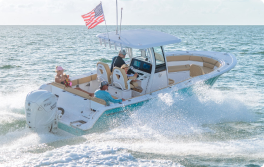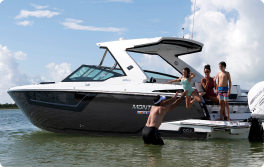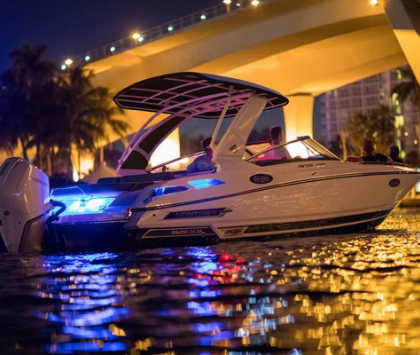It just takes a single ounce of seasickness to spoil your boating trip. Seasickness may affect anybody, no matter how much boating experience they have or how much they like being on the water.
Fortunately, there are a number of measures that can help you avoid being seasick in the first place – as well as alleviate the effects of seasickness once it has set in.
WHAT IS SEASICKNESS?
To begin, it’s important to understand what seasickness is and how it presents itself. Seasickness is an unpleasant feeling of nausea (together with possible dizziness, headaches, and other side effects) that can be minor or severe. It’s thought to be caused by discord between your inner ear’s balancing systems and your visual impression of your environment.
In other words, if the boat looks to be still while your inner ear perceives motion, you may become nauseated. Environmental variables, such as the scent of fish, can also aggravate symptoms.
Keeping Seasickness at Bay (and Helpful Remedies)
THE FOLLOWING ADVICE CAN HELP PREVENT SEASICKNESS:
- Make sure you get enough sleep. If you’re confined on a cruise ship and you’re seasick, you can have difficulties sleeping, which will only make things worse. Sleep deprivation has a detrimental impact on seasickness, intensifying symptoms and/or increasing the likelihood of it occurring. Make sure you get to bed early the day before you set sail and get a good night’s sleep; it may make a major difference in how you feel on the ship.
- Examine the weather. Check the weather forecast before leaving the house. Storms, strong winds, and rough seas cause vessels to shake more than usual. It could be in your best interest to postpone if you’re prone to seasickness and the weather forecast appears extremely erratic. You’ll have a lot easier time managing your symptoms if you wait for a calm, serene day.
- Carefully consider your route and vessel. Similarly, it’s a good idea to thoroughly plan your itinerary and vessel. Larger, more powerful ships are often more resistant to seasickness than smaller, more chaotic ships. Some routes also have calmer seas than others; you should avoid routes that take you through choppy or turbulent waters.
- Take an antiemetic to help you feel better. Antiemetic drugs are used to reduce the symptoms of seasickness by preventing and treating nausea. There are many distinct types of medications that fall into this category, as well as several brands for each of them. Most antihistamines (including names like Dramamine and Bonine) are available over the counter and may be purchased at any drug shop. If you require a stronger scopolamine medication, you’ll need a prescription. Antiemetics can be used as a prophylactic strategy or in response to the onset of seasickness. Also, certain antiemetic treatments might combine with other medications or produce serious adverse effects; talk to your doctor before using any.
- Don’t feel embarrassed with yourself. Try not to be embarrassed if you start to have seasickness symptoms. This is something that a lot of people go through, and there is no shame in it. Accepting the emotion might assist you in processing it.
- Take a look at the horizon. If you start to feel seasick in the cabin, go out to the deck and gaze at the horizon. Keep in mind that seasickness is caused by a mismatch between what your inner ear is feeling and what your eyes are seeing. Some of your symptoms will disappear if your eyes can more readily monitor the motion of your environment. This is also a fantastic way to get some fresh air, which can help you feel more at ease and calm while you work through your symptoms.
- Grab a light snack. While it may seem strange to eat while you’re sick, research suggests that having food in your stomach makes nausea sensations far more bearable. Having a completely empty stomach or a completely full stomach might aggravate the situation. Avoid meals that irritate your stomach, such as acidic or spicy foods, and instead graze on items that are easy on your stomach, such as saltine crackers.
- Avoid consuming alcoholic beverages. Avoid consuming alcohol in accordance with this. While drinking at sea is usual to make the most of the calm experience, alcohol can upset your stomach while also interfering with your senses. In other words, it’ll almost certainly make matters worse.
- Acupressure wristbands. Acupressure wristbands are wraparound devices that deliver pressure to particular places on your wrist. These particular wristbands, according to the manufacturers, can help with nausea symptoms. The evidence is divided; some individuals swear by them, while others dismiss them as little more than a flimsy marketing ploy. They’re usually affordable, so if you’re a persistent nausea sufferer who’s exhausted all other options, they’re certainly worth a go.
- Throw up if you’re feeling nauseous. If you have a strong want to vomit, don’t resist it. Consult a crew member or captain for advice on the ideal place to do so; you’ll almost likely feel better after you’re done.
- Distract yourself from the situation. You can also divert yourself from nausea by doing anything else. Even simple actions like counting can help you divert your attention away from your seasickness.
- Spend more time on the water. Your body and mind will adjust to the surroundings the more time you spend at sea. Your seasickness may never completely disappear, but it will become much more bearable.


